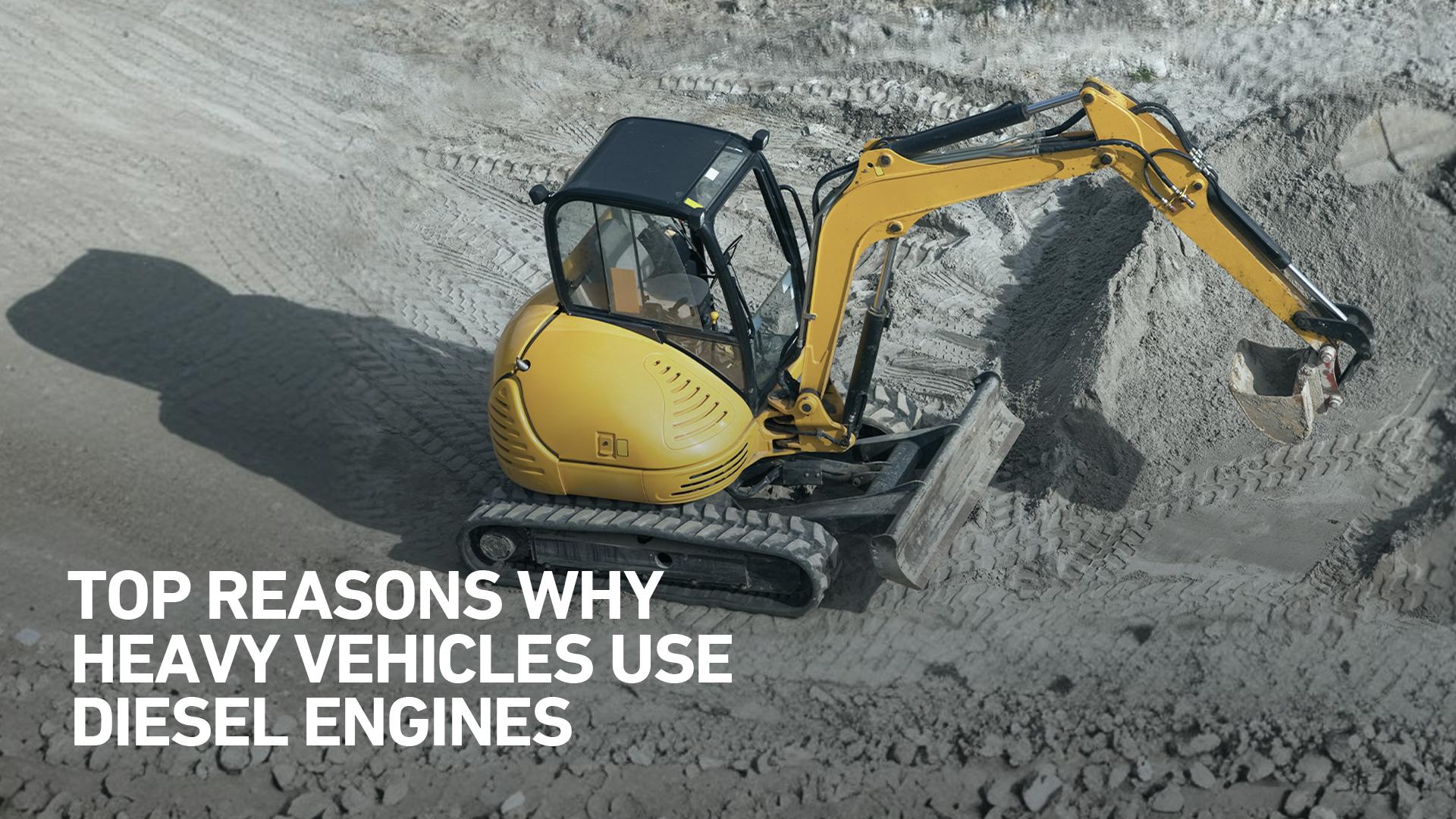5 Reasons Why Diesel Engines Propel Heavy Vehicles

Ever since its invention, diesel engines have become an integral part of our world. The advantages of a diesel engine are numerous, especially when compared to their counterpart gasoline engines. Particularly, when it comes to powering heavy vehicles, diesel engines are irreplaceable.
However, have you ever wondered what it is about diesel engines that make them an instant go-to option for propelling heavy vehicles? In this blog, we will discuss just that.
Top 5 Benefits of Diesel Engines that Make it Ideal for Heavy Vehicles
- ● High Torque
- ● Good Fuel Economy
- ● High Compression Ratio
- ● Improved Reliability
- ● Less Wear & Tear
- Let’s look at each one of these benefits in detail.
High Torque
Diesel engines are much more powerful when compared to gasoline engines. They can produce higher amounts of power and torque. Heavy vehicles require a significant amount of force to move them from a standstill. Diesel engines thus emerge as the preferred option to power them. They are equipped to generate enough torque to power heavy vehicles at any speed.
The diesel engine’s unique combustion process enables it to produce high amounts of torque. Diesel ignites under high pressure and temperature, leading to a more complete combustion. The high torque thus produced enables it to pull heavy loads with relative ease.
Good Fuel Economy
One of the advantages of diesel engines is they are more fuel efficient compared to petrol engines. A major reason for this is the fact that diesel fuel is thicker and burns considerably slower than gasoline fuel. In addition to this, it can even burn at a moderate temperature, which tends to further increase its fuel efficiency.
In contrast to this, if one were to use a petrol engine in a heavy vehicle, it would produce a low RPM, leading to a rapid combustion of fuel.
High Compression Ratio
Diesel engines typically have a compression ratio of 14:1 to 25:1, compared to petrol engines, which have a compression ratio in the range of 8:1 to 12:1. The higher compression leads to a more efficient combustion process. The fuel burns more completely, resulting in a reduction of energy loss and thus an increment of thermal efficiency. This emerges as a major benefit of diesel engines.
In addition to this, the higher combustion temperatures and pressures generated by high compression result in greater force driving the piston, leading to higher torque output. This torque is substantial for moving heavy vehicles.
Improved Reliability
Diesel engines are comparatively more reliable when compared to petrol engines. One of the reasons for that is they are constructed with larger blocks, thicker walls, and larger pistons. The bulky design helps in adequate lubrication, reducing friction and preventing damage to parts that rub on each other. This is one of the key reasons that tilts the needle toward diesel engines being preferred to propel heavy vehicles.
Less Wear and Tear
Since diesel engines run at lower RPMs than petrol engines, they are able to achieve the same power level with lower revolutions per minute. This results in less wear on essential engine components such as pistons, rings, cylinders, bearings, and valves. This reduced wear and tear eventually results in increasing their life span and durability. Thus, they come across as ideal options to propel heavy vehicles.
However just like every coin has two sides, diesel engines too have some disadvantages. Let’s have a look at some of them.
Disadvantages of Diesel Engines
One of the major disadvantages of diesel engines is that their cost of manufacturing and maintenance costs are relatively high. Commercial diesel engines in particular are expensive to manufacture because they require heavy-duty components. In addition to this, emission control is also a key factor. Emissions produced from diesel engines can contribute to group-level ozone pollution.
Furthermore, heavy-duty and commercial diesel engines can be noisy and produce more vibrations compared to gasoline engines. This can be a major drawback in applications where noise and vibration are a major concern. Additionally, while advancements in emission control technologies have significantly reduced diesel emissions, they still tend to produce higher levels of particulate matter and nitrogen oxides compared to petrol engines.
However, all said and done, diesel engines still have a lot to offer and with the technological advancements and breakthroughs taking place, they are constantly evolving. Their importance in the industrial sector, especially in powering heavy vehicles and equipment cannot be stated enough.
We hope reading this blog helped you understand the science behind why diesel engines are preferred in powering heavy vehicles.




